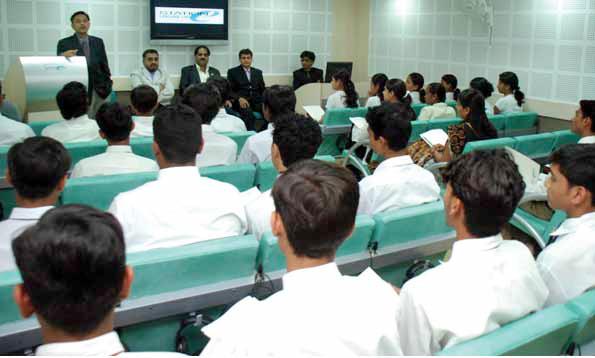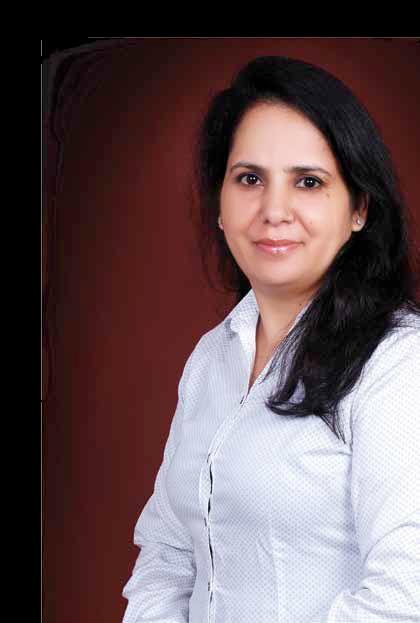 India is the seventh-largest country by area, the second-most populous country with over 1.2 billion people, and the most populous democracy in the world. Home to the ancient Indus Valley Civilisation and a region of historic trade routes and vast empires, the Indian subcontinent was identified with its commercial, cultural and learning wealth for much of its long history. Its population grew at 1.76 percent per annum during 2001–2011, down from 2.13 percent per annum in the previous decade (1991–2001).
India is the seventh-largest country by area, the second-most populous country with over 1.2 billion people, and the most populous democracy in the world. Home to the ancient Indus Valley Civilisation and a region of historic trade routes and vast empires, the Indian subcontinent was identified with its commercial, cultural and learning wealth for much of its long history. Its population grew at 1.76 percent per annum during 2001–2011, down from 2.13 percent per annum in the previous decade (1991–2001).
With GDP growing at 6.5 percent currently, the difference between the GDP growth and population at effectively 6.50 – 1.76 = 4.74 percent is the increase in per capita income. The inflation is pegged at 8 percent and the per capita income is growing only at 4.74 percent. This is regressive, alarming, dangerous and self defeating. The social and economic inequities that it breeds in its wake are the stuff that revolutions of the recent times have been made of.
Backdrop to education:
By the 4th and 5th centuries, the Gupta Empire had created a complex system of administration and taxation that became a model for later Indian kingdoms and spread far and wide into other civilisations that existed at the time. The complex system of administration borne out of education reflected in a flowering of sculpture and architecture, which found patrons among the urban elite. Classical Sanskrit literature flowered as well, and Indian science, astronomy, medicine, and mathematics made significant advances holding us in good stead even today. We were the leaders for a long time then leading the world in all its endeavors of development and growth. Indeed a glorious past. Somewhere along the way we seem to have lost the plot.
During the late 16th and the 17th Centuries, the East India companies competed with each other and by the last quarter of the 18th Century the English had vanquished all others and established themselves as the dominant power in India. The British administered India for about two centuries and brought about massive changes in the social, political and the economic life of the country bringing in its wake some successes and a lot more misery. This changed the education landscape as well.
By the time the anti-colonial struggle became truly a mass movement and the country gained independence, we were left with rebuilding broken economies, and broken education systems that were so vital to the standing of a Nation in the comity of Nations the world over. We needed to plan for Education. Though we did make some impressive gains in the last 60 years, we are left behind by miles in the quest of education for all. But yes, we should not fret for what is past, nor should we be anxious about the future since individuals of discernment deal only with the present moment.
The immediate challenges
We need not have delusions of our education systems on what we need to do and what we have done in the past of managing our education systems. As Sant Kabir said, “Maya Maya Sab Kahe, Maya Lakhe Na Koye, Jo Manase Na Utare, Maya Kahiye Soye” Everyone talks about delusion. No one understands what it is. The one that shrouds and clouds the mind should be identified as delusion.
For real progress, we need to lead our education paradigm upfront inspired to conceive beyond the norms, into new paradigms of learning, with aspirations above what has been previously achieved for teachers, trainers and learners and transforming the same into behaviours that realise the aspirations and inspire development like Sant Kabir said, “Karata Raha So Kyo Raha, Ab Kari Kyo Pachhataye, Boye Ped Babul Ka, to Amua Kaha Se Paaye”. You were about to do this. But why you did not do. You had sown seeds of babul tree. Therefore you should not expect mangos from the tree.
One great incongruity in our system has been development of an orgainsed sector of barely 10 percent when the developed world over, the figure is in the excess of 80 percent, and a total neglect of the so called unorganised sector whose development, in reality has unheard potential for many of the ills of this country.
The immediate opportunity:
Hence, Skills development, both in the organised and the unorganised sector and training as an education imperative is an extremely important activity for a growing economy such as ours. Every student who goes through higher education will be well served if he or she has additional skills acquired along with his / her studies. It enhances the employability opportunities. At the same time, skills, acquired by a student who does not go through a formal education, would provide a means of self employment and also a chance for employment in the formal sector. Focused skill development, with employability as the maxim, is the need of the day.
A scheme for Vocational Education where a student can learn competency based skills along with general education at various certificate levels initiated early in the school going, all the way up to a diploma or a graduate level is probably the way to go.
With a Bachelor in Vocational Education now duly constituted by UGC is expected to play the catalyst to an otherwise saturated system. A student in this mode is expected to study for a Diploma or a Degree in Vocational education along with acquiring skills. The most important feature of a framework created by AICTE is that a student could also avail of multi point entry and exit between formal or vocational education and the job market. Setting up Community Colleges, either new or in the existing polytechnics also needs to be pushed aggressively so that competency based skills with basic life skills is imparted to enhance the employment potential of our youth.
Private, public and government participation has been steadily increasing in the education sector. Forecasts suggest that, if current patterns of participation continue, more than 30% of today’s school leavers will experience higher education in 10 years from now. Higher education will shape individual lives, the economy and society. Such an activity must be the subject of broad and informed consideration and debate. We need to create a knowledge society. Knowledge is all pervasive eventually moving to a truly egalitarian society that provides education for all.
We also need to realise that our youth coming from the kind of financial means that they have, would need to be sustained on some minimal financial incentive to pursue skills for employment and hence we need credible financial models to sustain education for youth.
Let me suggest a model for our planners. Out of more than 11000 institutions that we have in the technical education space, even if we select 5000 under the community college framework as a subset of NVEQF, for the conduct of VE programs the opportunities indeed are massive.
If each student is trained in competency based skills, hundred a batch, for four to five hours a day about 200 days in a year at least a million students would be trained every year with an increase of 10 points in GER. If each of these students, assumed poor, is provided Rs. 50 / day to take care of travel and food for the period of the conduct of the program, the Grant required on account of this will be Rs 1000 Cr / annum. With an annual grant that may be provided to institutes that train these students amounting to Rs. 500 Cr / annum the total Project Cost could be estimated at Rs. 1500 Cr / annum, a small sum considering the employability potential of the scheme notwithstanding the political gains that accrue. This could even become a subset of the hugely successful scheme of MNREGA with yet untapped political gains as well.
Add to the above 5000 institutes that we have used for the skill based employment pitch, remaining 5000 that we have in the technical stream, 10000 ITI’s we have, 25000 colleges of University affiliated system in the arts, science and commerce streams, the possibilities seem to be stunning, overwhelming and mind boggling.
We need to inspire, achieve and engage our youth, wean them away from divisive forces, build them into a formidable force to pitchfork the economy to be positioned at a superior plane and of course create a WIN-WIN for everyone so that, again like Sant Kabir said “Kala Nala Heen Jal, So Phir Paani Hoye, Jo Paani Moti Bhaya, So Phir Neer Na Hoye”, Ice becomes water in the course of time. The water that has become a pearl will never again become water. We need to convert all our youth into those pearls.
Prof S S Mantha
Chairman, All India Council for Technical Education (AICTE)
 LIQVID, an integrated eLearning content solutions company specializing in English Language Training, has raised $3 Mn funding from SBI Ven Capital, a subsidiary of SBI Holdings, Japan.
LIQVID, an integrated eLearning content solutions company specializing in English Language Training, has raised $3 Mn funding from SBI Ven Capital, a subsidiary of SBI Holdings, Japan.









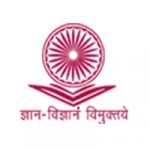
 The meeting of the Consultative Committee of Parliament for the Ministry of Human Resource Development was held on the subject, “Proposed National Mission on Teachers and Teaching”. At the outset a presentation was made in this regard in which it was elaborated that UGC has made two specific proposals with regard to teacher training. The first one is regarding Setting up of Regional Centres of Educational Management in the Indian Institutes of Management at Ahmedabad, Kolkata and Bangalore and in the National University of Educational Planning and Administration. The second one is regarding Establishment of Centres of Excellence in Science and Mathematics Education in leading national level institutions, namely Indian Institute of Science, Tata Institute of Fundamental Research etc. for development of specialized cadre of academy of teaching and teacher educators.
The meeting of the Consultative Committee of Parliament for the Ministry of Human Resource Development was held on the subject, “Proposed National Mission on Teachers and Teaching”. At the outset a presentation was made in this regard in which it was elaborated that UGC has made two specific proposals with regard to teacher training. The first one is regarding Setting up of Regional Centres of Educational Management in the Indian Institutes of Management at Ahmedabad, Kolkata and Bangalore and in the National University of Educational Planning and Administration. The second one is regarding Establishment of Centres of Excellence in Science and Mathematics Education in leading national level institutions, namely Indian Institute of Science, Tata Institute of Fundamental Research etc. for development of specialized cadre of academy of teaching and teacher educators.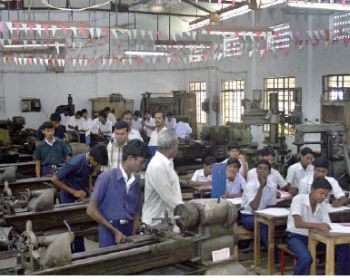
 Haryana Government will be initiating vocational courses for the students at school level along with academic course.
Haryana Government will be initiating vocational courses for the students at school level along with academic course.
 Haryana Open School, the state Education Board has introduced ‘On Demand Examination’ (ODE) from July.
Haryana Open School, the state Education Board has introduced ‘On Demand Examination’ (ODE) from July.
 Lucknow University has put 19 post-graduate courses on hold this year as these courses failed to attract students. These courses include diploma, PG diploma, proficiency, and certificate courses.
Lucknow University has put 19 post-graduate courses on hold this year as these courses failed to attract students. These courses include diploma, PG diploma, proficiency, and certificate courses.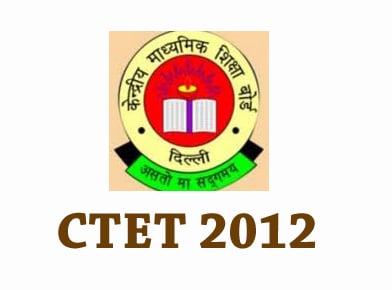
 The Central Board of Secondary Education, Delhi will be conducting the Central Teacher Eligibility Test (CTET) for a person to be eligible for appointment as a teacher for classes I to VIII on 18th November 2012.
The Central Board of Secondary Education, Delhi will be conducting the Central Teacher Eligibility Test (CTET) for a person to be eligible for appointment as a teacher for classes I to VIII on 18th November 2012.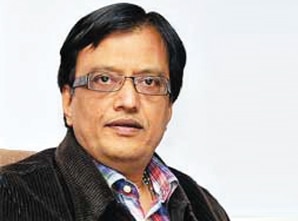
 India is the seventh-largest country by area, the second-most populous country with over 1.2 billion people, and the most populous democracy in the world. Home to the ancient Indus Valley Civilisation and a region of historic trade routes and vast empires, the Indian subcontinent was identified with its commercial, cultural and learning wealth for much of its long history. Its population grew at 1.76 percent per annum during 2001–2011, down from 2.13 percent per annum in the previous decade (1991–2001).
India is the seventh-largest country by area, the second-most populous country with over 1.2 billion people, and the most populous democracy in the world. Home to the ancient Indus Valley Civilisation and a region of historic trade routes and vast empires, the Indian subcontinent was identified with its commercial, cultural and learning wealth for much of its long history. Its population grew at 1.76 percent per annum during 2001–2011, down from 2.13 percent per annum in the previous decade (1991–2001).
